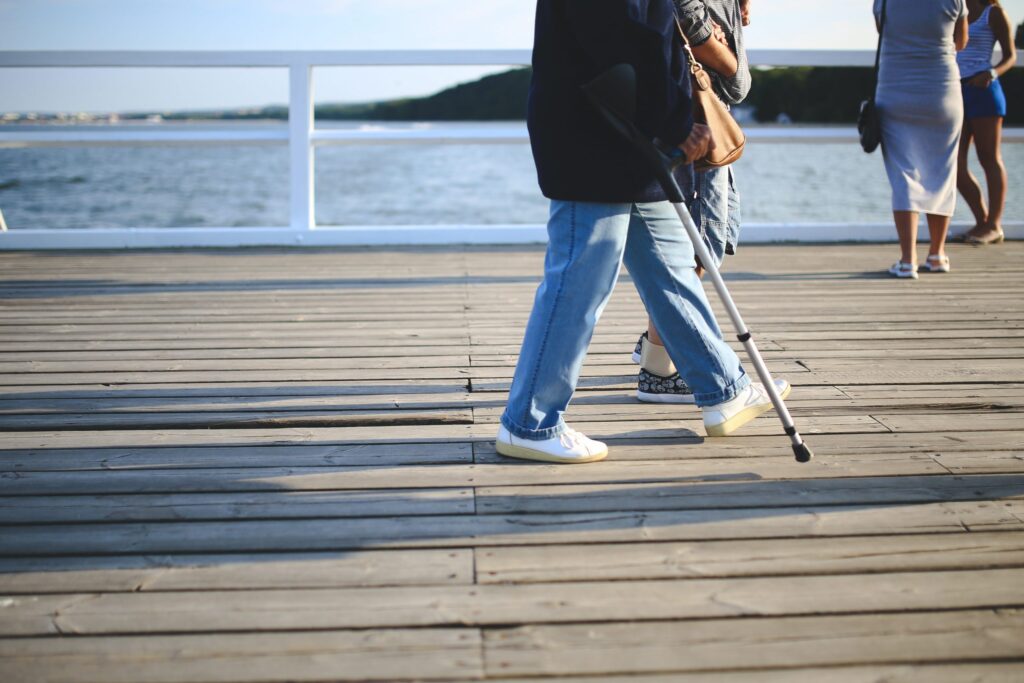Post-traumatic stress disorder (PTSD) is a serious mental Health condition that arises after a person experiences a traumatic event. Commonly associated with military combat, PTSD can also result from car accidents, natural disasters, violent assaults, or other life-threatening events. In the legal space, understanding PTSD is crucial, as it can play a significant role in personal injury cases, worker’s compensation claims, and criminal defense. According to the Munley Law Glossary, PTSD in legal contexts refers to the mental and emotional injuries sustained from traumatic events, often considered in the valuation of damages or when arguing for legal defenses.
What Is PTSD?
PTSD is a mental health disorder characterized by long-lasting and severe emotional responses to trauma. Common symptoms include flashbacks, nightmares, anxiety, depression, emotional numbness, and difficulty functioning in daily life. PTSD can manifest shortly after the traumatic event or develop years later, severely impacting a person’s ability to work, maintain relationships, and carry out normal activities.
In legal cases, PTSD is often recognized as a compensable injury when it results from another party’s negligence or intentional harm. For instance, someone involved in a severe car accident due to another driver’s recklessness may develop PTSD and pursue compensation for both their physical injuries and emotional trauma.
PTSD in Personal Injury Cases
Personal injury cases, such as car accidents, workplace injuries, or violent assaults, often consider PTSD as part of the plaintiff’s emotional damages. When someone files a lawsuit claiming personal injury, they may seek compensation not only for physical injuries but also for emotional and psychological harm. PTSD, as a recognized mental disorder, can significantly increase the compensation awarded if the claimant can prove that the disorder is a direct result of the defendant’s actions.
To establish a legal claim for PTSD in a personal injury case, plaintiffs typically need:
- Medical Evidence: A formal diagnosis of PTSD from a licensed mental health professional, such as a psychologist or psychiatrist.
- Causal Link: Evidence that the traumatic event caused by the defendant’s actions directly led to the development of PTSD.
- Expert Testimony: Mental health professionals may provide expert testimony regarding the nature of PTSD, the plaintiff’s diagnosis, and the extent of the mental and emotional suffering endured.
For example, if a person involved in a severe car crash develops PTSD, they may experience panic attacks when driving or even seeing a car, which can lead to lost wages, therapy costs, and diminished quality of life. In such cases, PTSD is a valid component of the damages being sought.
PTSD in Workers’ Compensation Claims
In the context of workers’ compensation, PTSD can be considered an occupational injury if it stems from work-related incidents. For example, first responders, such as police officers, firefighters, and paramedics, are frequently exposed to traumatic events that could result in PTSD. Workers who develop the disorder due to stressful or traumatic work conditions may file a workers’ compensation claim to seek benefits for treatment, lost wages, and permanent disability if the PTSD prevents them from returning to work.
One challenge in PTSD-related workers’ compensation cases is proving the connection between the traumatic event and the disorder. While physical injuries are easier to identify and attribute to workplace accidents, mental injuries like PTSD require thorough documentation and medical evidence to establish causality. Employers or insurers may contest these claims, arguing that the PTSD could stem from non-work-related factors, making the support of mental health professionals crucial to the case.
PTSD in Criminal Defense
In criminal law, PTSD can also be relevant, particularly as a defense in cases where the defendant’s mental state is in question. Defendants with PTSD may argue that their mental condition impaired their judgment or led to actions they would not normally take. While PTSD is not an excuse for criminal behavior, it may be used as a mitigating factor in sentencing or to argue for alternative punishments, such as treatment in a mental health facility instead of incarceration.
For example, a veteran with PTSD might commit a crime while experiencing a flashback or dissociative episode, and their legal defense could argue that the disorder diminished their capacity to Control their actions. Courts will often consider the severity of the PTSD and the defendant’s mental state at the time of the crime when determining the appropriate legal outcome.
Legal Considerations for PTSD Claims
Bringing a legal claim involving PTSD comes with certain challenges. One of the primary hurdles is establishing a direct link between the traumatic event and the development of PTSD. Unlike physical injuries, psychological injuries can be harder to prove, requiring expert testimony, comprehensive medical records, and an understanding of how the disorder impacts daily life.
Additionally, PTSD cases often involve a nuanced calculation of damages. Plaintiffs may seek compensation for medical treatment (such as therapy and medication), lost wages, diminished earning capacity, and pain and suffering. In severe cases, plaintiffs might also be entitled to compensation for long-term disability if PTSD prevents them from working or living normally.
Courts will assess the credibility of the PTSD claim based on the duration and intensity of the symptoms, the treatments sought, and the overall impact on the plaintiff’s life. Given the subjective nature of mental health disorders, having substantial medical evidence and professional testimony is crucial in these cases.


